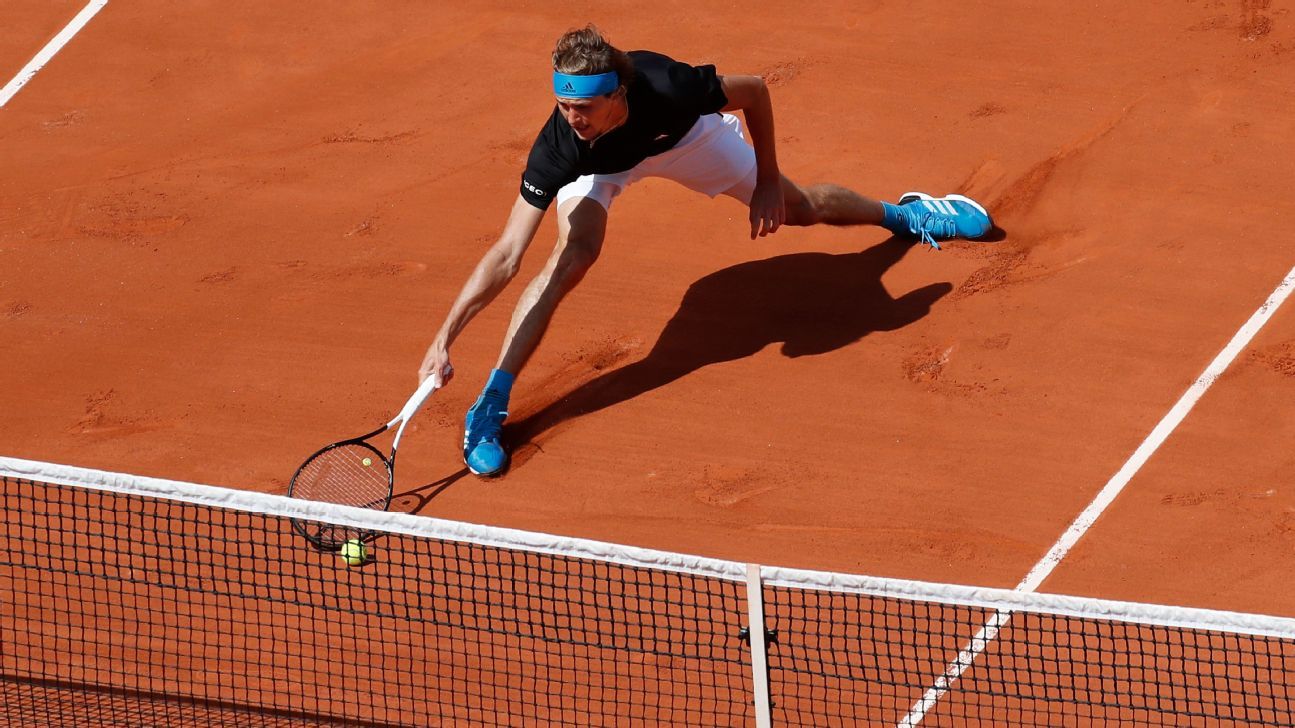PARIS — At last year’s French Open, amid the gloom and cold, one thing shone more brightly than anything else: the drop shot.
In French, it’s called l’amorti, (the literal translation of which means “cushioning”), and during the cooler, autumn conditions of the 2020 pandemic-altered Roland Garros, it was the shot of choice for many players.
Defending champion Rafael Nadal and Novak Djokovic used it expertly en route to a men’s final clash, as did Iga Swiatek on her way to winning the women’s title. Hugo Gaston, the talented Frenchman, hit an incredible 54 drop shots in his fourth-round match against Dominic Thiem. He hit nearly just as many in beating Stan Wawrinka the round before.
“His drop shots are from another planet,” Thiem said. “I was sprinting like 400 times to the net.”
But in 2021, with the Slam’s return to its traditional late spring, early-summer slot, albeit a week later than originally planned, the drop shot may not be quite as effective as it was eight months ago.
It is a useful shot to have in the armory on any surface, but, on clay, it’s particularly destructive. Not only does the soft surface make the ball bounce lower than on a hard court, but changing direction is even more difficult for players to chase it on the slippery clay, making it harder for opponents to run the ball down.
“Last year, the players were stuck in that clay-court mode, hanging out a little bit further behind the baseline, but I think they didn’t realize their shots are not as effective from back here,” three-time Roland-Garros champion and current Eurosport TV analyst Mats Wilander told ESPN. “They weren’t able to hit through their opponents from way behind the baseline. That’s why the drop shot was so effective.
“Now, suddenly, everybody’s shots are going to have a little more spin. It’s going to be much, much harder to hit an effective drop shot from another meter back on a ball that bounces maybe 20 centimeters higher than it did in September.”
When Thiem heard Gaston had been given a wild card into the main draw for this year’s French Open, the Austrian allowed himself a smile. “It’s a nice memory,” he told ESPN. “It was a special match back then, great atmosphere. I was physically really, really fit back then.”
On Tuesday, though, Gaston went the same way as Thiem, losing in the first round to fellow Frenchman Richard Gasquet. Not in the same form as eight months ago, Gaston tried to play a more conventional game, but his drop shots were not as effective. According to stats provider Infosys, Gaston made 13 drop-shot attempts, but only won two points.
When Gaston was crafting drop shot after drop shot against Thiem under much different conditions (the event was held Sept. 27-Oct. 11), the ball was dying in the cold, heavy clay. In the warm sunshine during this year’s event, the ball has been sitting up just a bit more, making it a riskier shot.
That doesn’t mean the shot is being avoided in 2021. Hit well, it can be an outright winner, or set up a player to hit a winner on their next shot once their opponent scrambles to get the ball back into play. It can also put doubt into the mind of an opponent, making them start to anticipate the drop shot, instead leaving them vulnerable to being pulled out of position by a regulation shot.
“Hitting a drop shot [is] always an option,” said Roger Federer, who used to describe it as a “panic shot” earlier in his career. Infosys stats showed Federer hit eight drop shots in his first-round victory against Denis Istomin and won the point every time. Serena Williams only hit two in her opener versus Irina-Camelia Begu, but won them both.
No. 5 seed Stefanos Tsitsipas said he would continue to use the drop shot this year.
“It’s always a good tactic [on clay],” he said. “Clay is clay. It might be slightly quicker, faster, but the drop shot is going to remain.”
For Tunisia’s Ons Jabeur, perhaps the most prolific exponent of the drop shot on the women’s tour, she says the change in the weather does make a difference, but not enough to stop her from using the shot when she believes it is right.
“I’ve got to say, drop shots on clay, they are always good,” she said. “It’s always better [on clay] than on hard court. But, last year — when it was heavy, the balls were heavier, and the weather was different — it was much better to do a drop shot. I don’t have to rely on drop shots all the time, [even though] it’s amazing to win the point like that.”
